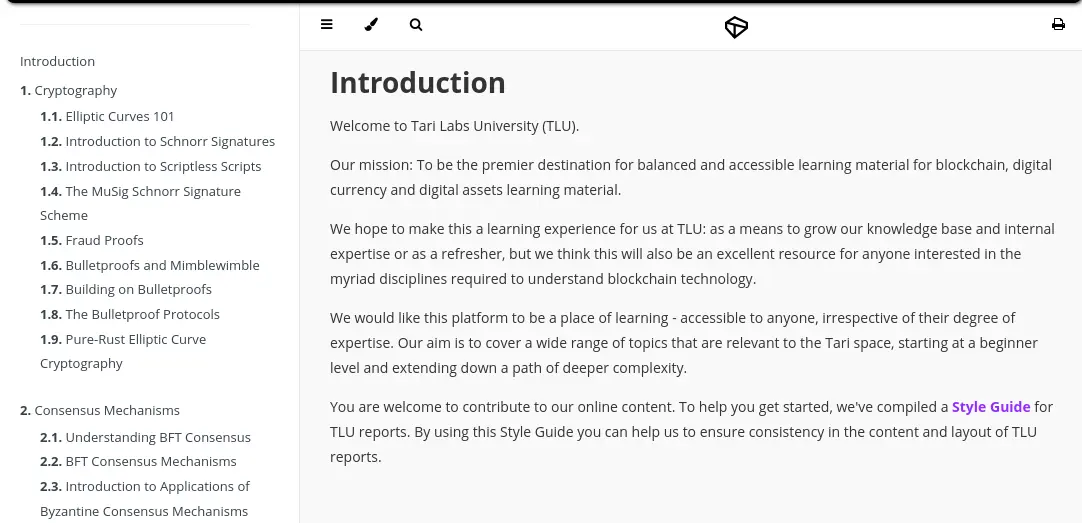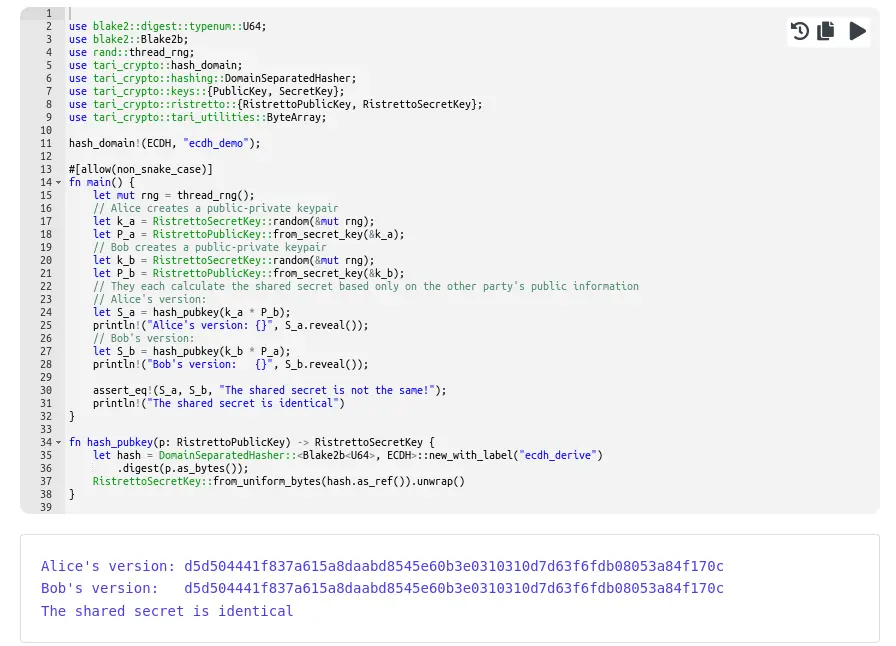January 10, 2024

Introducing TLU 2.0
Tarilabs University gets a fresh new look, new courses and updated tutorials.
We launched Tarilabs University (TLU) way back in 2019 to help developers learn how to build on Tari. Initially, the idea was for Tari Labs engineers to do a deep dive on a topic and then present a seminar to the community. The report, and/or slides, would then be published on TLU for anyone to read.

We gave TLU a fresh new look and feel in early 2022, which broadly kept the same content with a modern navigation paradigm, a look that has persisted until today.
Tarilabs university 2.0

Today we’re launching TLU 2.0, which is a complete overhaul of the site. All the original content is still there, but we’ve added a loads more curated content to help fill the knowledge gaps between “curious developer” and “fully-armed blockchain engineer”.
What is new?
Courses
We’ve arranged much of the content into courses. Each course collects a variety of learning sources together, including, for the first time, videos, as well as the traditional reports and slide decks. The content follows a progression to build towards achieving a concrete set of learning goals.
For example, the Introduction to blockchain course assumes you have almost no prior knowledge of blockchain technology, and presents several videos and articles, culminating in an annotated reading of the Bitcoin white paper.
Tari Tutorials
We’ve finally gotten around to updating Tari Rustpen with the latest Tari cryptography libraries. This means that all of the interactive tutorials in the Cryptography 101 course are using the same elliptic curve and cryptographic libraries that are running on the base nodes.
These are live, interactive tutorials. You can run the code, edit it, and see how the results change. Give it a go, it’s quite fun.
Category tags
We’ve also added category tags to all the modules on TLU, so you can easily find related content. If you’re not interested in following the curated learning paths offered by the courses and want to dive straight into all topics related to mining, for example, then you can do just that.
Searching
There’s a local index to search through all the content on TLU. We’ve also gotten TariBot to work an extra shift on TLU (for no extra pay) to help you answer your questions or to “ELI5” some of the topics that get too deep in the weeds.
Self-assessment tests
Each course also has a short self-assessment test, which you can use to check your understanding of the material, or, use it as a hyper-summary of the course content. It’s up to you.

What is the same?
Community-driven content
TLU is still a community-driven project. We’re always open to accepting new content that matches the ethos of the Tari Project. If you have an idea for a course, or a tutorial, or a blog post, or a video, or anything else that you think would be a good fit for TLU, then please submit a PR.
If you have better self-assessment questions for the courses, then please submit a PR.
If you wish to add additional interactive tutorials to Tari Rustpen, then please submit a PR.
If you find an inaccuracy, or want to improve any of the content, then, say it with me: submit a PR.
What’s next?
Once Tari’s mainnet launches and attention turns toward bringing privacy-oriented smart contracts to life, we, as the Tari community will be attracting a fresh cohort of developers to the Tari ecosystem. We will need to supplement TLU with all the concepts needed to make the RFC documents accessible, and to equip developers to contribute their own RFCs and source code.

Topics that are of interest for the next batch of TLU courses include:
- Zero-knowledge proving systems,
- Zero-knowledge roll-ups,
- Full homomorphic encryption,
- DeFi market mechanisms and incentives,
- Cerberus for dummies
- My first Tari contract
It’s going to be a wild 2024!
